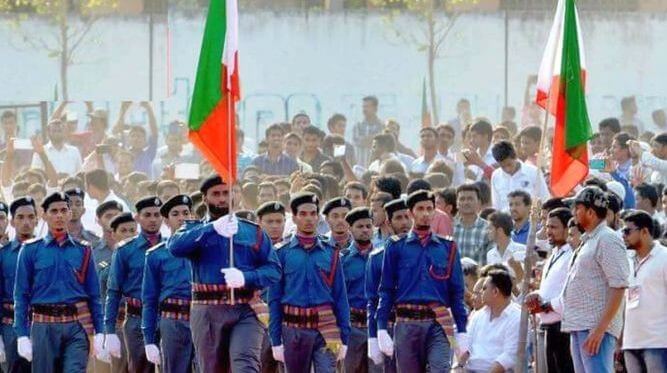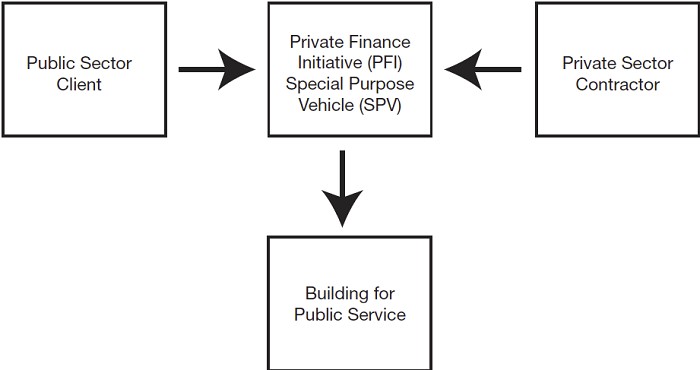What is the Full Form of PFI(i) PFI: Popular Front of IndiaPFI stands for Popular Front of India. PFI was formed in 2007 when 3 Muslim groups in the southern part of India merged with the NDF (National Democratic Front) in Kerala. By combining, it quickly gained a nationwide presence. However, the Government of India has recently (as of 2022) accused PFI of doing anti-national activities. Despite this, the PFI describes itself as a neo-social force dedicated to empowering individuals in order to secure freedom, liberty, and protection. At various times, the police found that the PFI activists were carrying lethal substances, explosives, ammunition and blades, and so various charges of having links with anti-national organizations were levelled against them. 
HistoryFollowing a domestic conference conducted by Muslim campaigners and thinkers, mostly from Southern Indian regions in Bengaluru between the 25th and 26th of January in 2004, PFI was created as a shared forum in collaboration with Southern India Commission. It addressed the subject of discrimination in employment there in public and commercial sectors, as well as in Legislature and Cabinets. CriticismsAffiliation to numerous Islamic anti-social groups, possession of weaponry, torture, assassination, harassment, hateful rhetoric, riots, Love-Jihad, and several forms of cultural fundamentalism are among the few charges that have been put against PFI over time. In 2010, the Popular Front of India was linked to an attack on Professor T. J. Joseph after he issued a controversial question that allegedly insulted Prophet Muhammad. In a court document filed in 2012, Kerala's council notified the Kerala Judges that claimed PFI was actively involved in about 27 serious offences, the majority of which involved members of such Communist Party of India (Marxist) and Rashtriya Swayamsevak Sangh (RSS). It was claimed again in 2014 that there were around 86 cases of attempts to attack by the PFI members in addition to the 106 other cases registered in the province. In August 2019, charges were filed against 18 PFI participants. During the altercation among several Islamic concerned over converting operations, PFI was accused of killing Ramalingam, one of the previous (ex) natives of the Paattali Makkal Katchi (PMK) party. According to interrogations, Ramalingam was allegedly murdered as a part of a conspiracy after he attempted to oppose the PFI's 'Dawah' (calling of Islam)-led actions. Connection with Anti-National GroupsThe PFI was alleged to have links with each of the banned Muslim anti-national groups, such as SIMI (Students Islamic Movement of India). Most of the students joining the Islamic Movement of India's predecessors have been later associated with PFI and have had multiple roles within the organization. Abdul Rehman, PFI's shows initiator, was formerly the Students' Islamic Movement of India's national manager. In contrast, Abdul Hameed, the group's regional spokesperson, was a previous Students' Islamic Movement of India's state superintendent. PFI participants were apprehended by Kerala state security with nationally produced explosives, guns and discs, in addition to several papers bearing Taliban ideology. The searches were later labelled unethical by the group. According to the Administration of Kerala notification to the state-wide High Court of September 6, 2010, the police had found no document of linkage with the Taliban in their investigation. PoliticsKM Sharif, Federal Director-General of Popular Front of India, had once said that the biggest need is for the housing of Muslims. He stated this while citing a document prepared from the PM's Top-Level Council in Nov 2006, where it recognized the Muslim group among the greatest retrograde of every religion, as well as contending that unsatisfactory conversation here on the subject was occurring in conferences and legislature. Many PFI campaigners have been punished under the Unlawful Activities (Prevention) Act for participating in terrorist actions. In May 2013, the group launched a state-level drive in Kerala on May 8th in Kasaragod district to highlight how such an Unlawful Activities (Prevention) Act is being abused or how people feel. The acts were performed to scare the residents who had already stood up against the tyranny of a ruling class. Later, PFI also initiated a state-wide program named Why the Popular Front, detailing conspiracy claims and attempts by the national media and other organizations to ruin its reputation. SMS CampaignAs of 13 August 2012, over 60 million SMS were exchanged within a working day, with about 30% of such emails being produced through Pakistan. The short messaging operation was intended to create fear among residents of the northeast, prompting residents to evacuate. The act resulted in the migration of around 30,000 people from Mumbai, Madras, Bangalore and the country's capital Delhi. (ii) PFI: Private Finance InitiativePFI stands for Private Finance Initiative. PFI was an acquirement strategy used by the British Council to establish public-private partnerships in which private enterprises were hired to carry out and administer public works. Private Finance Initiative, which was first introduced in 1992 under PM John Major and significantly extended from the Blair administration, is now known as a component of a larger plan of restructuring and financialization. In this initiative, private enterprises used to construct the structures and account for the operation of community spaces, occasionally employing retired public workers. Thus their working time was again shifted to the corporate sector by the recruitment and recruitment process. 
HistoryConservative administration under John Major introduced PFI for the inaugural period in the United Kingdom in 1992. The Maastricht Treaty, which established the European Economic and Monetary Union (EMU), also served as a reference for its introduction. The financial industry itself didn't accept PFI well, and execution got resisted by the regional organizations. The minister of the Exchequer characterized the advancement as unexpectedly sluggish in 1993. He established the Private Sector Department inside that Cabinet, which had a Private Sector Committee led by Alastair Morton to aid in promoting and carrying out the strategy. Later, the Worker Administration selected Malcolm Bates to lead the initiative and a handful of Arthur Andersen personnel to investigate the program in order to encourage the PFI. He suggested establishing a "Treasury Task Force" to reorganize the PFI and educate city staff on the techniques. MechanismA civil service body signed an agreement with a private financial sector alliance, officially referred to as a specific purpose vehicle (SPV). Various business owners, involving a bank, the main contractor, and a design firm, helped control the PFI's needs and objectives. Typically, this partnership was established with a view to promoting and expanding PFI as its primary goal. Based on the work objectives, PFI agreements were normally supposed to be made for approximately 30 years, while we may sometimes find shorter or longer agreements far less prevalent. The public service commission would create the outcome description or agreement outlining the firm's goals. The partnership was based on forfeiture of a portion of its compensation if it did not achieve any of the established requirements or until it met all specified expectations. The civil sector organization was often allowed to withdraw from the deal, compensate the consortium, and take the project's control when the requirements did not actually rise after a specified time. However, the cancellation processes were complicated. Private finance initiative contracts depended primarily on how accurately or poorly they were designed and how determined and competent the contractor would be to maintain them. Policies ExecutionThe facilities, including train equipment of such London subways, were privatized in late 2003 by the Labour Party through PPP (public-private partnership) collaborations. The 2 different big private enterprises, Metronet and Tube Lines, were founded underneath the PPP. However, they were both later converted into public ownership. Private Finance Initiative (PFI) faced challenges due to the worldwide meltdown that started in 2007 since several streams of equity investments had stopped flowing. ImpactAccording to research by HM Treasury published in July 2003, its sample included transactions that went beyond expenditure in scenarios where the public sector changed its mind after deciding what it wanted and from whom. People sometimes conjectured that certain PFI initiatives were poorly defined and carried out. For example, a confidential government report in 2005 condemned the PFI-funded Newsam Center at Seacroft Hospital for endangering the lives of about 300 patients and staff.
Next TopicFull Form
|
 For Videos Join Our Youtube Channel: Join Now
For Videos Join Our Youtube Channel: Join Now
Feedback
- Send your Feedback to [email protected]
Help Others, Please Share










